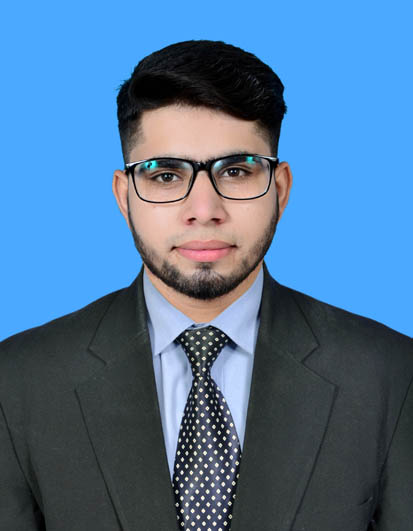By Nadir Ali
Every person deserves access to education, which is a fundamental right that is essential to fostering peace. People who pursue education are better equipped to think critically, to innovate, and be change agents. Education also broadens people’s horizons. Societies can be changed by education, which also promotes respect, tolerance, and understanding among various cultures and communities. Consequently, empowering minds through education is essential for constructing peaceful bridges and advancing sustainable development.
Moreover, the person can better understand the world and meet challenges by acquiring knowledge, skills, and values through education. Additionally, education gives people the power to exercise their rights and obligations, make informed decisions, and take part in social, economic, and political life. People can learn critical thinking, problem-solving, and communication skills through education, which are crucial for establishing peace and resolving conflicts.
Similarly, it is a powerful tool for fostering respect, tolerance, and understanding among various cultures and communities. It can dismantle prejudices and stereotypes and foster compassion and unity. Additionally, it can assist individuals in appreciating and celebrating cultural diversity as well as recognizing the value of intercultural dialogue and exchange. As a result, education is essential for fostering social cohesion and constructing peaceful bridges.
Additionally, promoting sustainable development and addressing global challenges require education. Through education, people can learn how complex relationships exist between social, economic, and environmental factors and how to create long-lasting solutions to pressing global issues like poverty, inequality, and climate change. It can also promote moral production and consumption, and it can give people the confidence to assume civic responsibilities and support sustainable development.
Many obstacles still exist, despite the critical role that education plays in empowering people’s minds and creating peaceful bridges. For millions of people around the world, particularly in developing nations, gaining access to high-quality education remains a significant challenge. Access to education is hampered, and its effects on promoting peace and sustainable development are constrained by issues such as gender disparities, poverty, conflicts, and crises. Therefore, overcoming these obstacles calls for a group effort and a comprehensive strategy that takes into account the multifaceted nature of education.
To build bridges of peace and advance sustainable development, it is crucial to educate and empower people. Education addresses global challenges, empowers individuals, and fosters tolerance and understanding. To realize education’s full potential, we must, however, find solutions to the problems that limit access to high-quality education and its reach. We can create a more tranquil, prosperous, and environmentally sustainable world by making educational investments.
One of the most important aspects of our lives is learning new things. It gives us the resources and tools required for success in our jobs, personal lives, and society. Understanding our surroundings, making wise decisions, and acting appropriately are all made possible by knowledge. The power someone has over their lives and the world around them increases with their level of knowledge. Knowledge is not only acquired through formal education; it can also be acquired through firsthand knowledge, investigation, and information gathering.
The process of acquiring knowledge and skills through formal instruction, independent study, or hands-on training is known as education. It gives people the power to decide for themselves and to act in ways that will benefit both their lives and society. The ability to pursue one’s goals and dreams and to make a positive impact on the expansion and improvement of one’s community are both made possible by education. An educated person can participate in democratic processes more successfully because they have a better understanding of their rights and obligations.
The process of enhancing a person’s ability to make wise decisions and take action is known as empowerment. The main way to empower people is through education because it equips them with the knowledge and abilities they need to meet life’s challenges. People who are empowered can take charge of their lives, contribute fully to society, and go after their dreams. It enables people to oppose social expectations and stereotypes and fight for their rights as well as the rights of others.
It is one of the most effective means of developing people’s minds and enabling them to fulfill their potential. It creates new possibilities and gives people the knowledge and abilities they need to succeed in life. The development of resilient, strong communities that encourage and support one another requires empathy and compassion. A society that is not only smarter but also kinder and more support can be produced by fusing education and compassion.
It is the secret to realizing one’s potential and finding success. It equips people with the knowledge and abilities they require to successfully navigate their surroundings, make wise decisions, and pursue their aspirations. It can also be transformative by fostering the growth of critical thinking abilities, broadening perspectives, and challenging preconceived notions in individuals. The future of our society is something we invest in by funding education.
Nadir Ali holds a bachelor’s degree in Strategic and Nuclear Studies from the National Defense University, Islamabad. He has written for Modern Diplomacy, Pakistan Today, Pakistan Observer, and numerous other publishers. He tweets at @hafiznadirali7 and can be reached at hafiznadirali7@gmail.com

